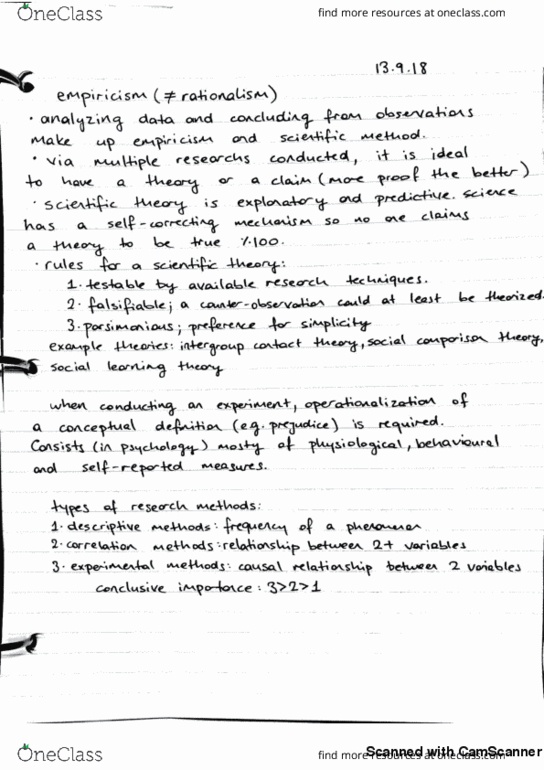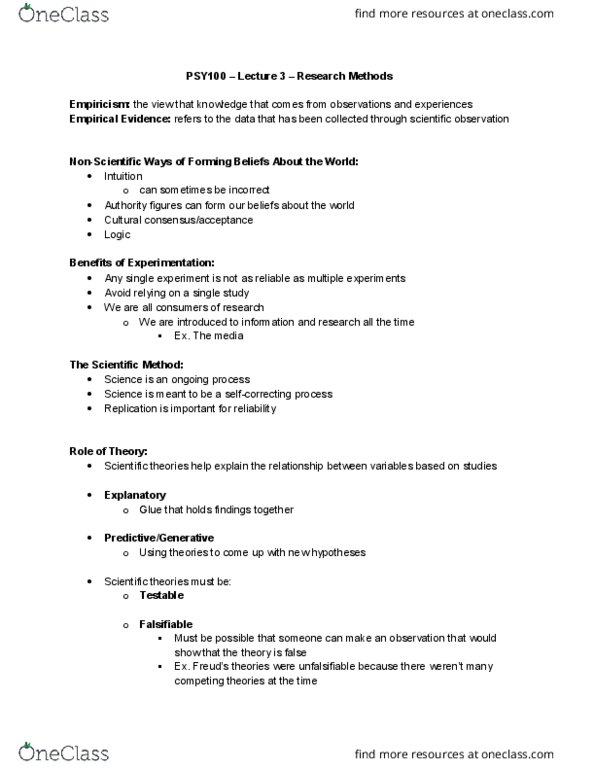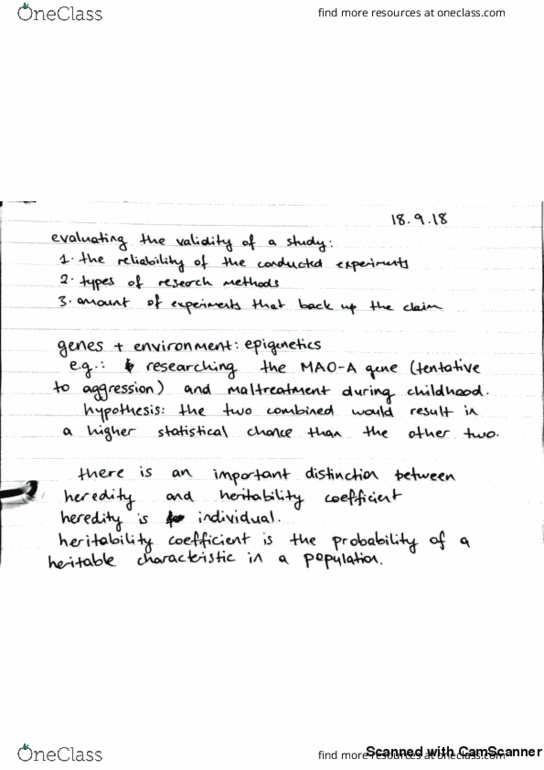PSY100H1 Lecture Notes - Lecture 3: Falsifiability, Hawthorne Effect, Operational Definition
PSY100H1 verified notes
3/25View all
Document Summary
Empiricism: the view that knowledge that comes from observations and experiences. Empirical evidence: refers to the data that has been collected through scientific observation. Non-scientific ways of forming beliefs about the world: Intuition: can sometimes be incorrect, authority figures can form our beliefs about the world, cultural consensus/acceptance, logic. Benefits of experimentation: any single experiment is not as reliable as multiple experiments, avoid relying on a single study, we are all consumers of research, we are introduced to information and research all the time, ex. The scientific method: science is an ongoing process, science is meant to be a self-correcting process, replication is important for reliability. Freud"s theories were unfalsifiable because there weren"t many competing theories at the time: parsimonious, the theory that is the simplest, and makes the fewest assumption is favoured. Dictionary definition of the variable: unable to measure variable.





